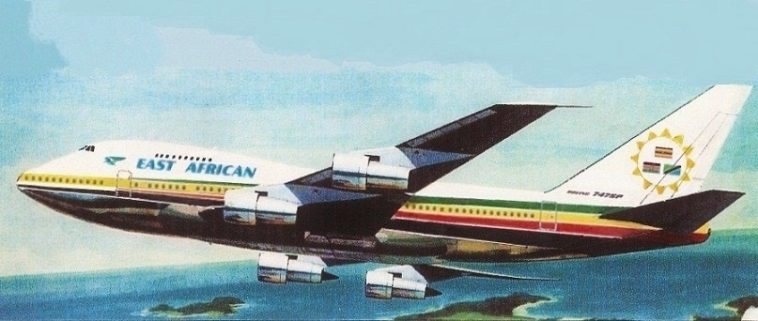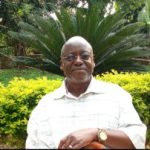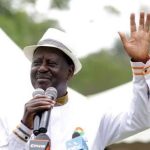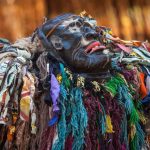The first time I travelled on an aeroplane was in the 1970s when I was reporting to my duty station as a fisheries research officer of the East African Marine Fisheries Research Organisation (EAMFRO) of the East African Community (EAC), and while I moved between EAMFRO’s Mombasa substation and its main station in Zanzibar.
EAMFRO was only one of the many research organisations/institutions of the EAC. There was the East African Freshwater Organisation (EAFRO). The East African Medical Research Council had a chain of research institutions, including: the East African Institute of Malaria and Vector Borne Diseases (EAIMWBD), East African Virus Research Institute (EAVRI), East African Trypanosomiasis Research Organisation (EATRO) and East African Leprosy Research Centre (EALRC).
There were also many corporations to manage common services in the then three countries of East Africa. They included: East African Railways Corporation (EARC), East African Harbours Corporation (EAHC), East African Development Bank (EADB) and East African Posts and Telecommunications (EAPTC) in addition to the East African Airways (EAA).
Therefore, those days the East African countries of Uganda, Kenya and Tanzania were more united economically and socially, but very much at variance politically despite the continued talk of East African Federation, which still reverberates today. Unfortunately, the more the EAC has expanded with the inclusion of Burundi, DRC, Rwanda, Somalia and South Susan, the more it has become disunited, with mushrooming suspicions among the members. Some are concentrating on building military superiority more than contributing to the cohesion of the Community.
The East African Airways (EAA), as one of the corporations of the EAC, was the pride of the Community. It had a huge fleet of planes, which included Vickers Super VC 10s, Boeing 747-100s (leased), McDonnell-Douglas DC 9s, Focker F27s, and De Havilland DHC – 6 Twin Otters. Vickers VC 10s were used for long-haul routes and constituted the primary long-range aircraft used by the EAA during the 1970s. The Boeing 747-100s (a pair of them) were wide-body aircraft leased for a period to meet peak demands. The McDonnell Douglas DC-9S were for both domestic and regional services. The Fokker F27S were for short to medium haul flights. The De Havilland DHC-6 Twin Otters were added to the fleet in the late 1960s for domestic routes. There were the De Havilland Comet 4s that were added in the late 1960s and early 1970s. There was one Hawker Siddeley Britannica was operated as a cargo plane in 1971. And there was a Douglas DC-3, which was used in the early times of the EAA, but we’re progressing.
There were, therefore, a wide range of planes for the workers of the East African Community and others to travel on. I don’t remember which particular ones I travelled on. But one thing I remember is that I always travelled in economy class, although I was a senior member of the EAA. Obviously, all the Director-Generals of the organisations and corporations of the EAA, Presidents of Uganda, Kenya and Tanzania travelled in the business class. There is no doubt that some businessmen and businesswomen travelled in business class as perhaps did government Ministers.
There is a story of one Kenyan Minister who always travelled in business class and was more comfortable when the Captain of the plane he was travelling in was a white man. He was called Charles Njonjo. He was born on 23 January 2020 and died on 2 January 2022. He was Attorney-General during the reign of Jomo Kenyatta (1963-1979) and Minister of Constitutional Affairs and Member of Parliament for Kikuyu Constituency (1980-1983). The story goes that when he entered the business class of one of the East African Airways he noticed that the Captain was a black man. He immediately disembarked from the plane.
When the East African Community collapsed in 1977, due to the political rising incongruence of the Presidents of Kenya, Tanzania and Uganda (i.e., Jomo Kenyatta, Kambarage Nyerere and Idi Amin respectively) who together constituted the Authority of the Community, everything, including the fleet of EAA planes, was grounded. It is unlikely that the now re-established and greatly expanded EA will re-establish the former EAA and other corporations that greatly benefited the region in diverse ways.
The next time I travelled on a plane was 1995. I was then a lecturer at Makerere University. I travelled on KLM from Entebbe to Brussels, Belgium. I was going to Universite Catholique de Louvain to deliver a joint paper I wrote with the late Prof. Foster Byarugaba titled “Environmental Impact of Refugees in Africa: Some Suggestions for Action”. I travelled in Economy Class.
From then on, travelling by air became routine for me. However, every time I travelled, it was in Economy Class. In 2000, I travelled from Entebbe to Bonn, Germany, on Ethiopian Airways. In 2001, I travelled to Johannesburg, South Africa, and Maputo, Mozambique on South African Airways for a workshop in Maputo. In the same year, I travelled by Rwanda Airways to Bujumbura for workshop on the Horn of Africa. Between 2003 and 2007, I travelled mainly by Kenya Airways to various countries such as South Africa, Swaziland, Lesotho, Susan, Egypt, Ethiopia, DRC, Kenya, Tanzania, Egypt, Rwanda and Burundi as Vice-Chairman and later Chairman of the Uganda Nile Basin(UNDF), one of the then 10 Forums of the regional NGO called Nile Basin Discourse (NBD). I travelled mainly by Kenya Airways and Ethiopian Airways.
Apparently, even when I was elected Chairman of the NBD in 2008, I never travelled in business class even if I now was the top-most civil society leader in the Nile Basin region of ten countries (Burundi, DRC, Egypt, Eritrea, Ethiopia, Kenya, Rwanda, Susan, Tanzania, Uganda) and managed a budget of 9 million British Pounds. As Chair, I travelled extensively in Africa to other countries such as Senegal, Ivory Coast and Chad, and outside Africa to countries such as Belgium, Japan, United Arab Emirates, Denmark and Netherlands, Spain and Great Britain – and all in economy class.
The longest flight in my life was from Entebbe to Kyoto, Japan, in 2003 from Entebbe a total of 11 hours.
My first and, perhaps, last opportunity to travel in business class came in November 2009. It was all by accident. I was travelling to Barcelona, Spain to participate in the Barcelona Climate Change Conference from 2 to 6 November and called Pre-Cop for UNFCCC Barcelona Climate Change Conference. When I arrived at Entebbe Airport, there was unusually strict security check on me. But it was not only me who was checked for hours. Another person whom I later established as Bernard Elly Mujaasi, was also subjected to the same strict security check. Mujaasi was then Chairman, Mbale District, and like me, he was travelling to Barcelona, Spain for the same Conference.
It was a long time before the security people allowed us to travel. But by that time, the plane that was to take us, via London had left us. It was now for the airport people to find us an alternative plane. Fortunately, there was a British Airways plane still docked at Entebbe Airport, with no passengers. This was because there was a labour dispute in the airline. The Cabin Crew in the British Airlines Stewards and Stewardesses Association (BASSA) had just embarked on what was called a historic 2-year (2009-2011) battle against British Airways, which was seeking to impose reduced crew levels and to transform workers’ conditions.
When Chairman Bernard Elly Mujaasi and I entered the British Airways plane, only the Captain and co-Captain and one other crew were on the plane. So, in total, we were 5 on the huge plane. Mujaasi and myself were booked to travel in economy class. We selected seats in the economy class. However, no sooner had we sat and fastened our belts than the crew member told us to move to business class. This to us was a most unlikely thing that was all the same happening. We knew the unusual happening was because there was a dispute in British Airways and that without it business class would be far beyond our capacity to occupy. It was a very good experience for me because it came as a surprise. Good surprises are enjoyable.
The flight was direct from Entebbe to London. You can imagine the feeling Mujaasi and myself had. The steward was even a Ugandan who spoke English better than the English themselves. We talked and laughed all the way to Heathrow Airport. We had good food. We had good drinks.
I had never been to London. So it was a welcome event when the plane landed at the airport and only the steward, the cabin crew, Mujaasi and myself disembarked from the wide-body plane. After going through all the formalities, Mujaasi and myself sat down for tea and some bites in one of the many joints at the airport while waiting for our next plane to Barcelona, Spain. We got so involved in a wide-ranging conversation that we forgot London was not our final destination but just a transit place. By the time we remembered to look at our itinerary, we had a few minutes for our next plane to take off. We rushed as fast as we could but it was obvious the plane would leave us. When we arrived at the end point, we saw our plane steadying itself in the skies. It had left us. We went to the airport staff to find out if they could put us on the next plane. They said yes, but then advised us to pay an extra $100:dollars each, which we did.
It was not long before we were on another plane and where we belonged: Economy. It was a nice flight. We arrived safely at Barcelona airport. We went straight to the hotel we were booked for the duration of the conference (November 2 – 6, 2009). When the day of departure for Heathrow Airport came, we read our itinerary wrongly. Instead of 7 am, we read 7 pm. You can imagine the suffering we underwent. When we arrived at Barcelona Airport, we were reminded we were supposed to leave at 7 am. They told us now we had to pay a fine of $ 200:each and wait for 24 hours for the next plane to Heathrow Airport! It was torture of our lives. We suffered the cold but finally left in Economy. We arrived at Entebbe Airport at midnight. We got an Airport cab to Kampala. When the driver asked us where exactly we were going, I told him Mprereirwe because that is where my residence was. The Chairman could not travel to Mbale so early in the morning. He agreed to stay at my residence until he was ready to move on. Jane my wife provided a hospitable home environment for the Chairman. The children were happy to see me back with the Chairman. When the Chairman was ready to go, one of our children drove him to Kampala from where he got transport back to Mbale. And that makes the end of the story. I understand that later the Chairman was appointed Presidential Advisor on Bugisu Affairs by the President, Tibuhaburwa Museveni.
This post was created with our nice and easy submission form. Create your post!






